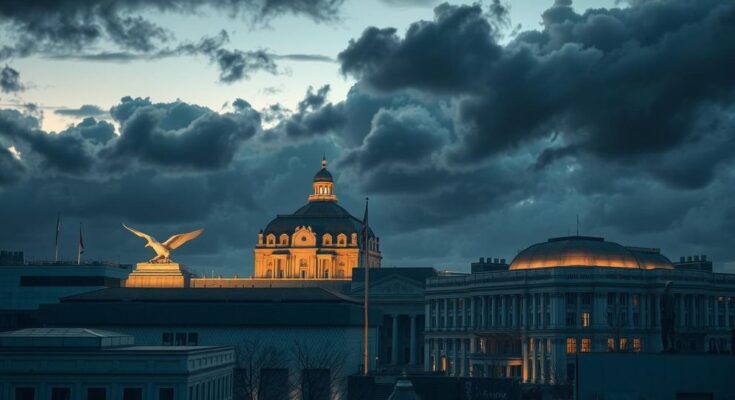The arrest of former Philippine President Rodrigo Duterte by the ICC signifies hope for justice regarding his violent war on drugs, which resulted in thousands of deaths. Advocates view this as a pivotal moment for accountability, although concerns remain regarding ongoing threats to human rights and activism under the current administration of Ferdinand Marcos, Jr. Persistent structural issues and problematical laws from the Duterte era still challenge the safety of activists in the Philippines.
The recent arrest of former Philippine President Rodrigo Duterte signifies a pivotal moment following the notorious war on drugs that marked his presidency. Duterte, aged 79, was taken into custody after a warrant was served by the International Criminal Court (ICC) upon his return from Hong Kong. This event has been perceived as a call for justice for the countless victims of his anti-drug policies from 2016 to 2022.
Duterte’s brutal crackdown resulted in thousands of executions, with the former leader publicly stating he would offer “no apologies” for his actions. Critics within his political circle have condemned the arrest as “unlawful,” citing the Philippines’ withdrawal from the ICC in 2019. However, the ICC maintains it retains jurisdiction for crimes committed prior to this withdrawal, prompting hope among advocates for accountability.
Agnes Callamard, Secretary General of Amnesty International, described Duterte’s detention as a “hopeful sign for victims in the Philippines and beyond,” emphasizing the potential power of international law. The ICC is investigating crimes against humanity linked to the thousands killed during the drug war, even as skepticism remains regarding the wider implications for human rights in the Philippines.
Under the ICC’s framework, it investigates severe international crimes, stepping in when national jurisdictions fail. Once Duterte faces the ICC, the pre-trial phase will determine if there exist substantial grounds for the charges against him. His case is particularly notable as he is the first former Asian leader to face such charges.
While the Philippines government documented over 6,000 deaths in the drug conflict, international organizations estimate this figure to be as high as 20,000, including many innocent victims, such as children. This widespread violence marked a particularly grim chapter in the nation’s history, exacerbated by the lack of accountability and justice for victims.
Moreover, Duterte’s policies have had a devastating toll on human rights defenders. Rachel Cox of Global Witness remarked that the war on drugs has “normalised” extrajudicial killings, challenging the security of activists. The Philippines has ranked as Asia’s deadliest country for environmental defenders for 13 consecutive years, with policies from the Duterte era continuing to pose threats to civil society.
As the nation transitions to President Ferdinand Marcos, Jr., analysts question whether Duterte’s arrest will enhance protection for those advocating for environmental and human rights. Marcos’s ongoing support for mining ventures undermines environmental activism and fosters risky conditions for defenders. Activists have urged for reforms in laws like the Anti-Terrorism Act and the maintenance of the controversial National Task Force to End Local Communist Armed Conflict, which has been criticized for human rights abuses.
In conclusion, while Duterte’s recent arrest sparks hope for accountability in the Philippines, the enduring structural issues within the legal framework and political climate pose significant challenges for human rights protection. Proactive measures are still needed to safeguard the rights of defenders and foster a climate conducive to activism in the post-Duterte era.
The arrest of former President Duterte marks a significant event in the quest for justice for victims of his administration’s violent drug war. However, the entrenched legal and political challenges in the Philippines may hinder meaningful progress in human rights advocacy. Without further reforms and commitment from the current government to protect activists and hold violators accountable, the future of civic space remains uncertain. It remains crucial to ensure that the pursuit of justice permeates beyond the walls of the ICC and into the broader societal context.
Original Source: www.eco-business.com




